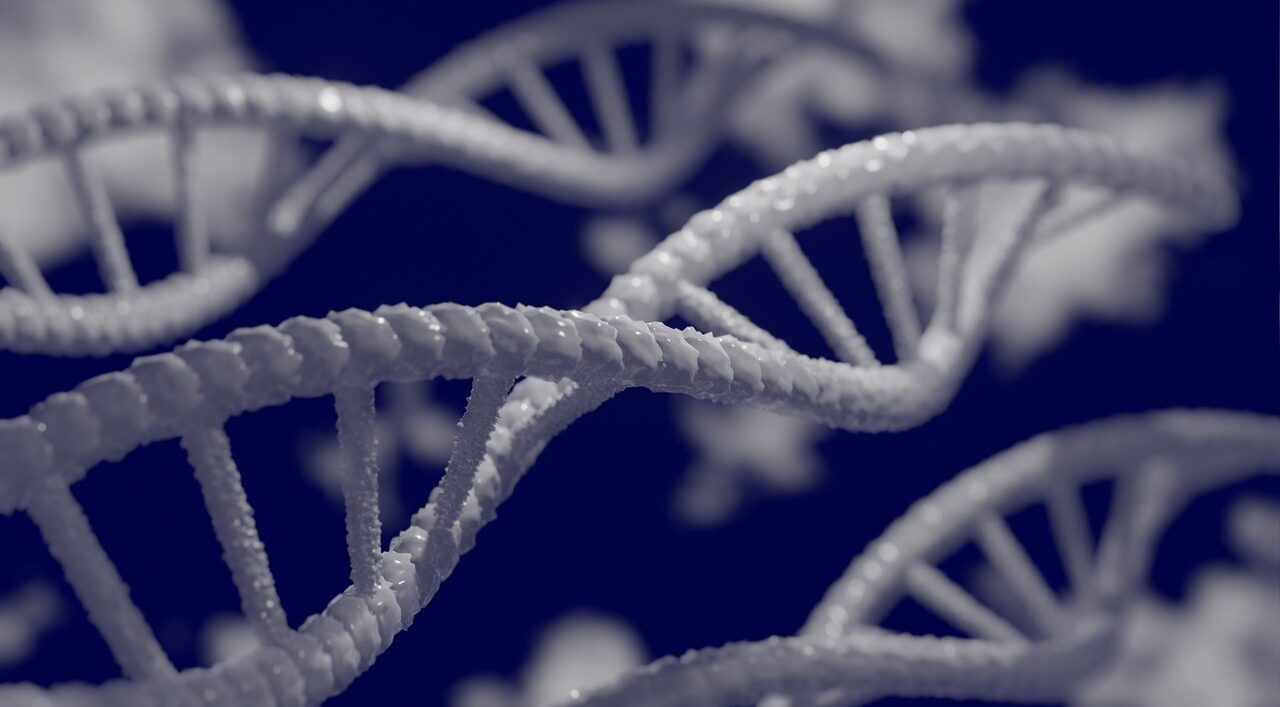Biotechnology
Pioneering the Future of Science and Innovation
Introduction
In the realm of science and innovation, few fields have had as profound an impact on our lives as biotechnology. Biotechnology encompasses a wide range of scientific techniques and processes that utilize living organisms or their components to develop products, improve processes, and solve complex challenges. From healthcare to agriculture, environmental conservation to industrial manufacturing, biotechnology has revolutionized various sectors and holds the potential to address some of humanity’s most pressing issues.
Biotechnology is a rapidly evolving field that harnesses the power of biological systems, living organisms, and their components to develop innovative solutions to some of the world’s most pressing challenges. Biotechnology, the application of biological systems and processes to develop innovative products and solutions, has emerged as a cornerstone of modern science and industry. By harnessing the power of living organisms, biotechnology has the potential to solve some of the most pressing challenges of our time, ranging from healthcare to agriculture, energy, and the environment. It merges biology, technology, and engineering to create products, processes, and services that have the potential to transform industries, improve human health, and protect the environment. From breakthroughs in medicine and agriculture to environmental sustainability and industrial applications, biotechnology is revolutionizing various sectors and shaping the future of our world.
In this blog, we will delve into the fascinating world of biotechnology, exploring its diverse applications, achievements, and the ethical considerations that accompany this powerful discipline.
Understanding Biotechnology
Biotechnology can be defined as the application of biological principles and techniques to create, modify, and improve products, processes, and organisms for various purposes. It encompasses a diverse range of scientific disciplines such as molecular biology, genetics, biochemistry, and microbiology, among others. By manipulating living organisms or their components, biotechnologists strive to solve complex problems and address critical challenges faced by humanity. By harnessing the inherent capabilities of biological systems, biotechnology has the potential to revolutionize numerous industries, including healthcare, agriculture, energy, environmental management, and industrial manufacturing.
Biotechnology encompasses a wide range of techniques and methodologies aimed at manipulating living organisms, their cells, and molecules for practical purposes. By manipulating and understanding the fundamental building blocks of life, scientists and researchers can develop groundbreaking solutions to address various challenges. Biotechnology involves the use of living organisms or their components to develop or modify products and processes.
Categories of Biotechnology
1. Medical Biotechnology: This branch focuses on developing new diagnostic tools, therapies, and vaccines to combat diseases. It encompasses areas such as gene therapy, personalized medicine, regenerative medicine, and the production of biopharmaceuticals.
2. Agricultural Biotechnology: Agricultural biotechnology aims to enhance crop productivity, improve resistance to pests and diseases, and increase nutritional value. Genetically Modified Organisms (GMOs) and gene editing techniques like CRISPR-Cas9 play a crucial role in developing crops with desirable traits.
3. Industrial Biotechnology: Industrial biotechnology employs biological systems to produce valuable chemicals, materials, and biofuels. This sustainable approach reduces reliance on fossil fuels and minimizes environmental impact.
4. Environmental Biotechnology: This branch focuses on using biological processes to remediate polluted environments, develop sustainable waste management systems, and explore biofuels as alternatives to non-renewable energy sources.
Biotechnological Advancements and Impact
1. Healthcare Breakthroughs
Biotechnology has paved the way for groundbreaking advancements in healthcare, transforming the diagnosis, treatment, and prevention of diseases. The field of medical biotechnology involves developing innovative therapies, vaccines, and diagnostics by harnessing the power of living organisms. For instance, gene therapy holds immense promise for treating genetic disorders by introducing functional genes into a patient’s cells. Biopharmaceuticals, such as insulin and monoclonal antibodies, are produced through biotechnological processes, offering more effective and targeted treatments for various diseases, including cancer, autoimmune disorders, and rare genetic conditions.
Biotechnology plays a crucial role in the development of novel drugs and treatments, such as gene therapy, immunotherapy, and regenerative medicine. Biotechnology has also contributed to the production of safer and more effective vaccines, improved diagnostics for diseases, and the development of personalized medicine based on an individual’s genetic makeup. These cutting-edge products offer targeted treatment options for diseases like cancer, autoimmune disorders, and infectious diseases, significantly improving patient outcomes and quality of life.
2. Agricultural Innovations
The world’s population is growing, and with it comes the challenge of feeding billions of people while minimizing the impact on the environment. Biotechnology offers solutions to these challenges by enhancing agricultural practices. The agricultural sector has greatly benefited from biotechnology, particularly through the development of Genetically Modified Organisms (GMOs). Genetic engineering enables scientists to enhance crop traits, making them more resistant to pests, diseases, and environmental stresses. This technology has not only increased agricultural productivity but also reduced the reliance on harmful chemical pesticides, and herbicides, and increased crop yield and nutritional value. Biotechnology also enables the production of nutrient-enriched and drought-tolerant crops, addressing malnutrition and promoting sustainable agriculture in regions with challenging growing conditions.
Furthermore, biotechnological techniques such as tissue culture and micropropagation have revolutionized plant breeding and accelerated the development of new crop varieties. These advancements enable the production of higher-yielding, disease-resistant, and nutritionally enhanced crops, contributing to global food production and addressing the challenges of a growing population.
3. Genetic Engineering
Genetic engineering and gene therapy, for instance, offer groundbreaking possibilities for treating genetic disorders and even curing previously incurable diseases. Through gene editing technologies like CRISPR-Cas9, scientists can precisely modify the DNA of living organisms, potentially eradicating hereditary diseases and reducing the burden of genetic disorders on families and healthcare systems. The revolutionary CRISPR-Cas9 gene editing tool allows scientists to edit genetic material with unprecedented accuracy, potentially eradicating inherited diseases and modifying traits in crops and livestock.
The development of recombinant DNA technology, for example, has enabled the production of therapeutic proteins like insulin, growth hormones, and clotting factors, benefiting millions of patients worldwide. Additionally, biotechnology plays a vital role in the development of targeted therapies, gene therapies, and personalized medicine, offering new hope for previously untreatable conditions. Genetic engineering and synthetic biology have the potential to conserve biodiversity by reintroducing endangered species and enhancing the resilience of ecosystems. Scientists are exploring genetic rescue techniques to combat species decline, mitigate the impacts of climate change, and restore fragile ecosystems.
4. Environmental Conservation
Biotechnology offers innovative solutions for environmental conservation and remediation. One such example is Bioremediation, where living organisms are used to degrade or remove pollutants from contaminated soil, water, or air. Bioremediation techniques employ microorganisms to break down harmful pollutants in soil and water, helping to clean up contaminated sites. This technique has proven effective in cleaning up oil spills, toxic waste sites, and other environmental disasters.
Biotechnology offers promising solutions to environmental challenges. Microorganisms can be engineered to degrade pollutants, while biofuels derived from renewable biomass reduce greenhouse gas emissions. Additionally, bioplastics made from plant-based materials are being developed as sustainable alternatives to conventional plastics. It offers innovative solutions for waste management, pollution control, and ecological restoration. Synthetic biology enables scientists to design and engineer organisms capable of producing environmentally friendly materials or performing specific environmental functions, such as carbon sequestration.
Developing microbial enzymes and microorganisms capable of breaking down various waste materials has opened avenues for sustainable waste management. Additionally, Biotechnology also enables the development of biofuels, such as ethanol and biodiesel, offering renewable energy sources that reduce greenhouse gas emissions and dependence on fossil fuels. Biofuels derived from renewable sources such as algae and bacteria show promise as environmentally friendly alternatives to fossil fuels.
5. Industrial Applications
Enzymes produced through biotechnological methods are widely used in the textile, detergent, and food industries to enhance efficiency and reduce waste. Industrial biotechnology also enables the production of bio-based materials, such as biofuels, bio-based chemicals, and biodegradable plastics. These developments foster a more sustainable and environmentally conscious approach to industry.
Industrial biotechnology harnesses the power of microorganisms to produce enzymes, biofuels, bioplastics, and biocompatible textiles offering greener alternatives to traditional manufacturing processes, enabling sustainable production methods and reducing the environmental footprint of various industries. These eco-friendly alternatives offer a more sustainable approach to traditional manufacturing processes, reducing reliance on non-renewable resources and minimizing waste generation.
Additionally, biotechnology has revolutionized the field of Synthetic Biology, where scientists design and engineer new biological systems to create valuable products. From bioengineering microbes to produce complex chemicals to designing artificial organisms capable of specific tasks, such as pollutant detection or drug synthesis, synthetic biology presents an array of exciting possibilities for industrial applications.
Biocatalysis, the use of natural catalysts, enables more eco-friendly and cost-effective manufacturing processes. Bioplastics, derived from renewable resources such as corn or sugarcane, offer an alternative to petroleum-based plastics, reducing dependence on non-renewable resources.
Ethical Considerations
As biotechnology continues to advance, it is essential to address the ethical considerations surrounding its applications. Ensuring the responsible and ethical use of biotechnology is crucial to avoid unintended consequences and potential misuse. The rapid pace of advancement requires careful assessment of safety, risk management, and regulatory frameworks to ensure responsible development and deployment of biotechnological innovations. Additionally, concerns related to Genetically Modified Organisms (GMOs), gene editing technologies, and data privacy must be addressed to strike a balance between innovation and ethical implications.
Genetic engineering, cloning, and stem cell research present complex ethical dilemmas that require thorough examination and regulation. Striking a balance between scientific progress and ethical responsibility is crucial to ensure biotechnology is used for the greater good and in harmony with societal values. Regulation, transparency, and public engagement are essential components of navigating the ethical challenges associated with biotechnology.
Future Perspectives
Looking ahead, the future of biotechnology holds even more promise. Advancements in fields such as synthetic biology, nanotechnology, and bioinformatics are expected to unlock new possibilities and drive further innovation. Biotechnology’s potential to address global challenges, ranging from climate change and pandemics to sustainable resource management, makes it a vital field for shaping a better future.
Biotechnology continues to push the boundaries of scientific exploration. Exciting fields such as synthetic biology, tissue engineering, and nanobiotechnology hold immense potential for future applications. Synthetic biology involves the design and construction of artificial biological systems, enabling the creation of organisms with novel functionalities. Tissue engineering aims to regenerate or create tissues and organs, revolutionizing transplantation and regenerative medicine. Nanobiotechnology explores the intersection of nanotechnology and biotechnology, facilitating the development of advanced drug-delivery systems and diagnostic tools.
Conclusion
Biotechnology is a transformative field that has revolutionized multiple sectors, from healthcare to agriculture, and from environmental conservation to industrial manufacturing. Through innovative applications of living organisms and their components, biotechnology offers solutions to address pressing challenges facing humanity. By continuing to invest in research, development, and ethical frameworks, we can unlock the full potential of biotechnology, driving sustainable growth and improving the quality of life for people around the world.
From healthcare and agriculture to environmental conservation and industrial processes, Biotechnology’s impact is far-reaching and transformative. With collaboration between scientists, policymakers, and society as a whole, we can harness the power of biotechnology to overcome challenges and build a better future for all.
In conclusion, Biotechnology’s potential to improve human lives, protect the environment, and create sustainable solutions is unprecedented. As we navigate the ethical implications, it is crucial to foster responsible innovation, open dialogue, and robust regulatory frameworks to maximize the benefits of biotechnology while mitigating potential risks. However, it is crucial to approach these advancements with caution, prioritizing ethical considerations, and ensuring their responsible use. By doing so, we can unlock the full potential of biotechnology and create a future where science and innovation pave the way for a healthier, more sustainable world, and a prosperous future for humanity.


